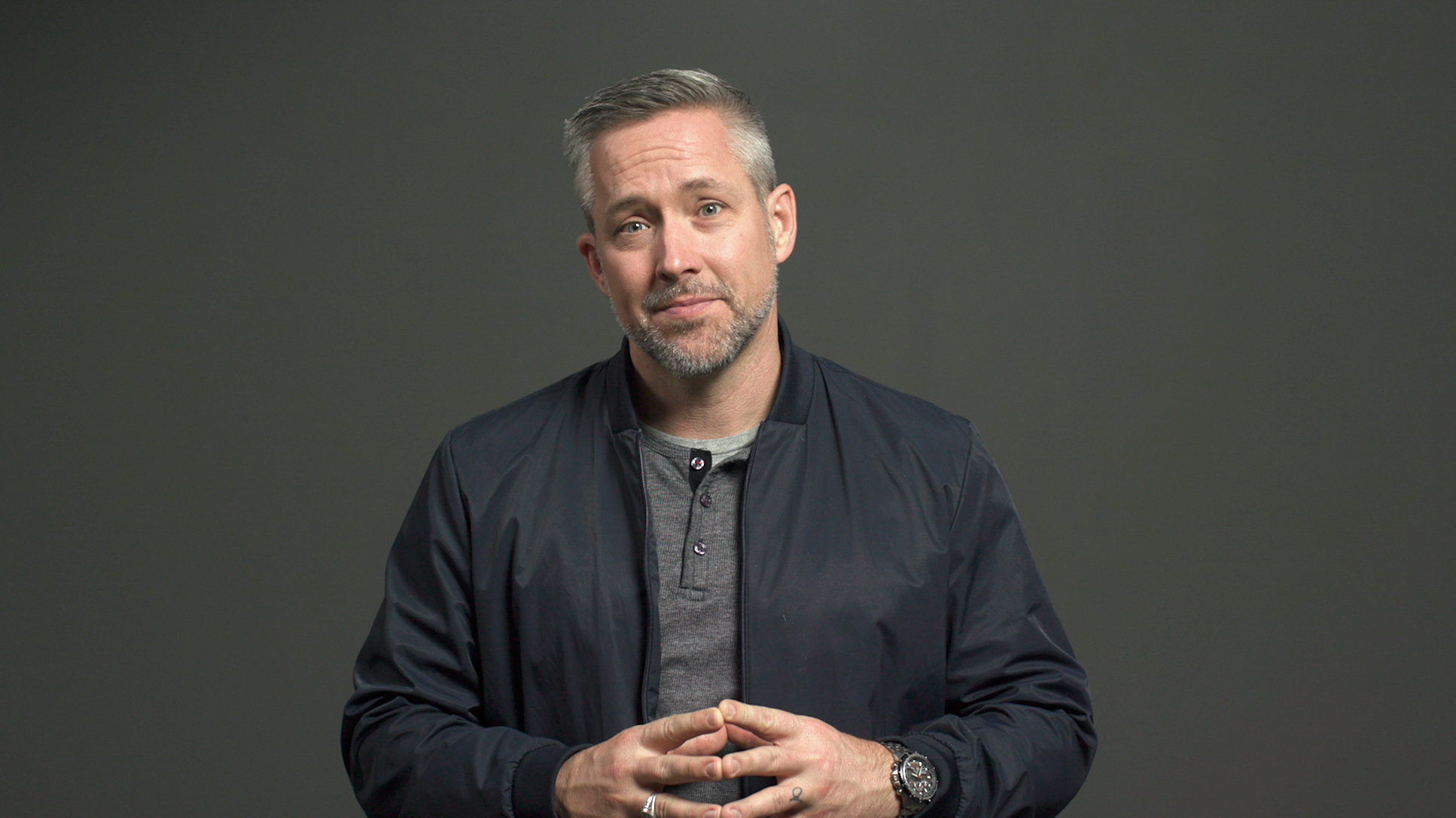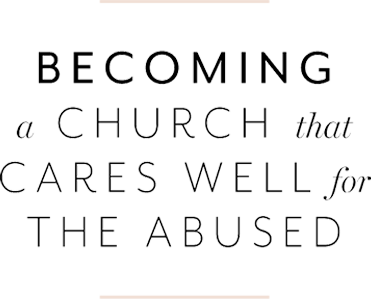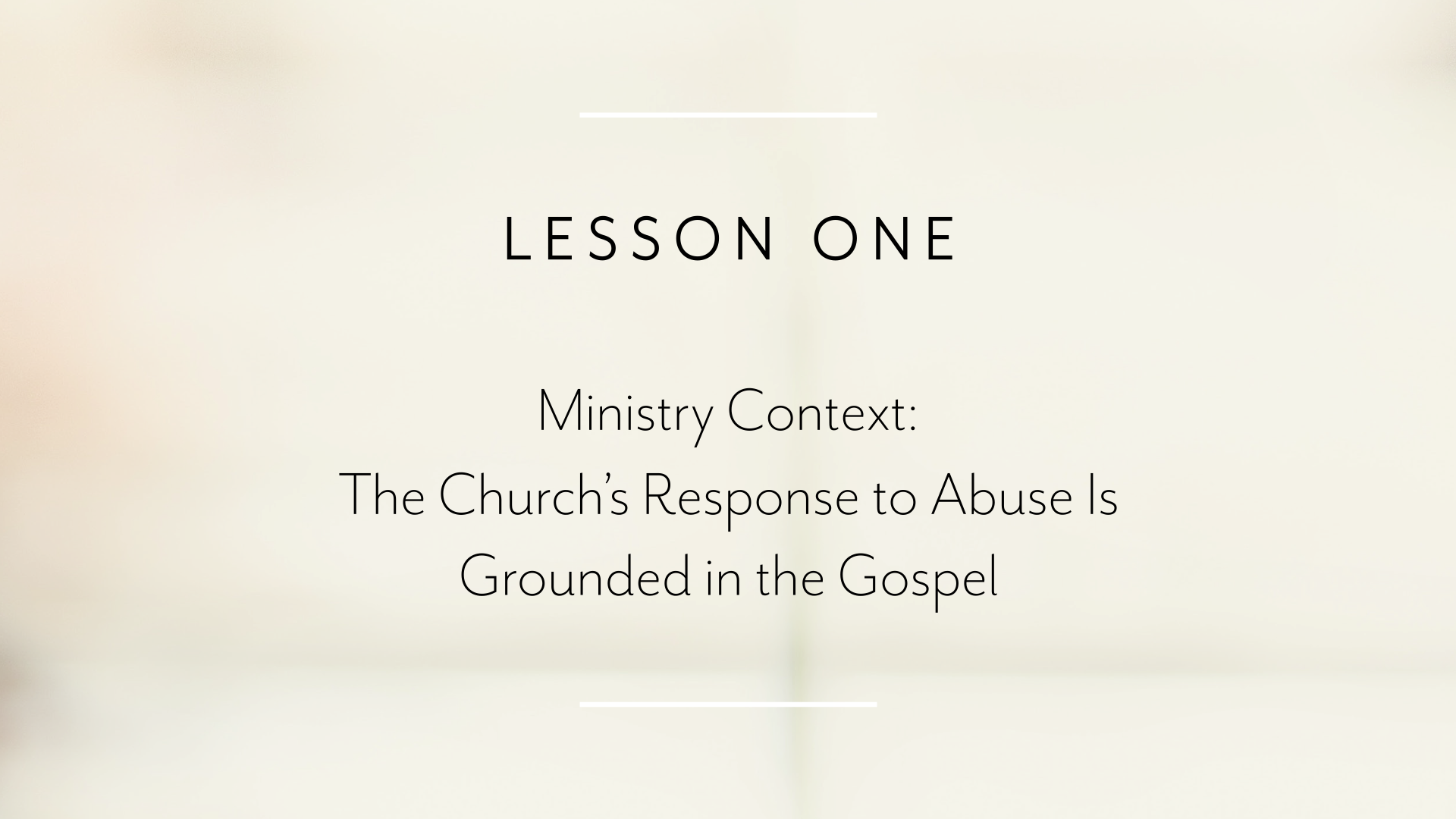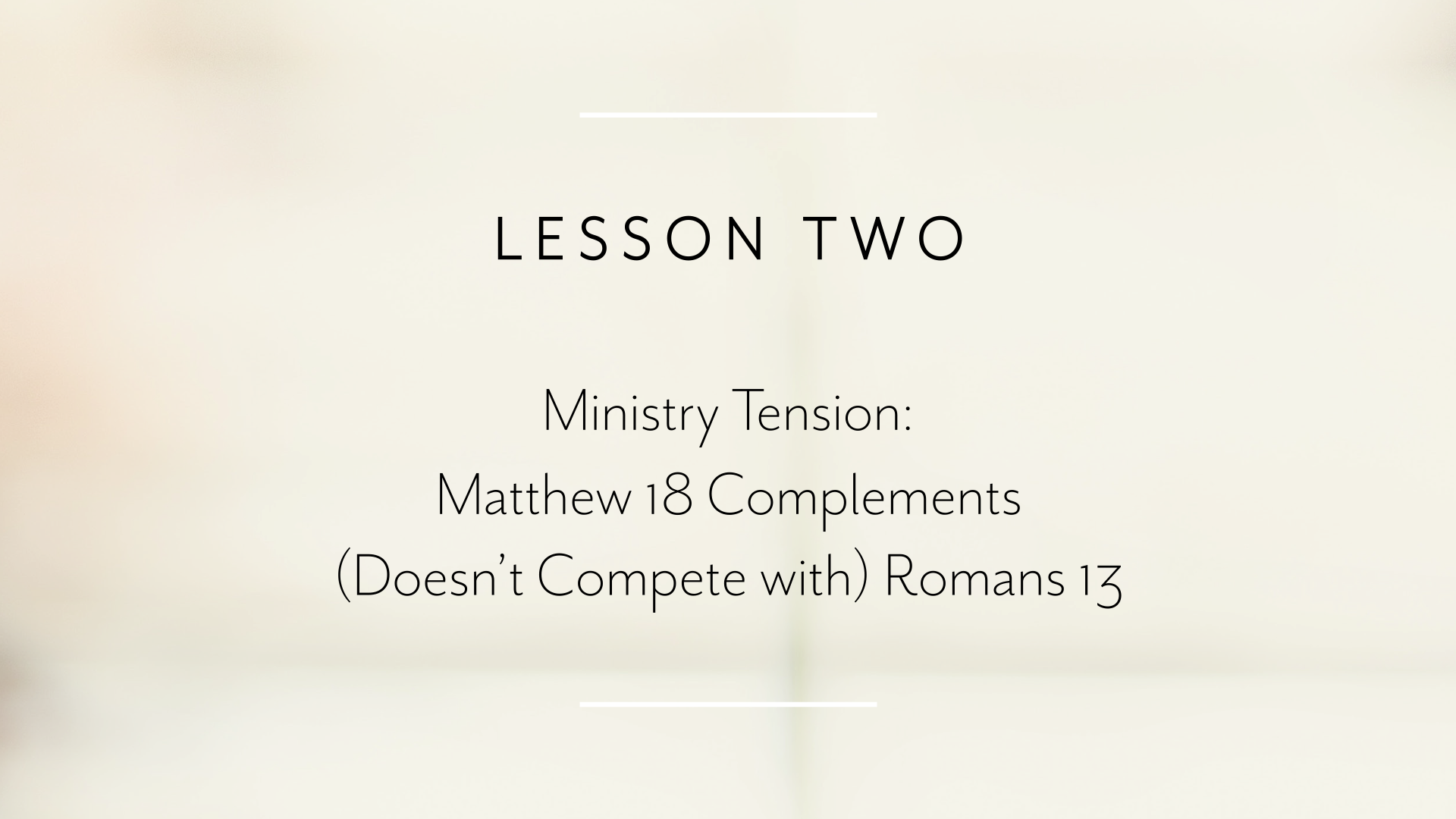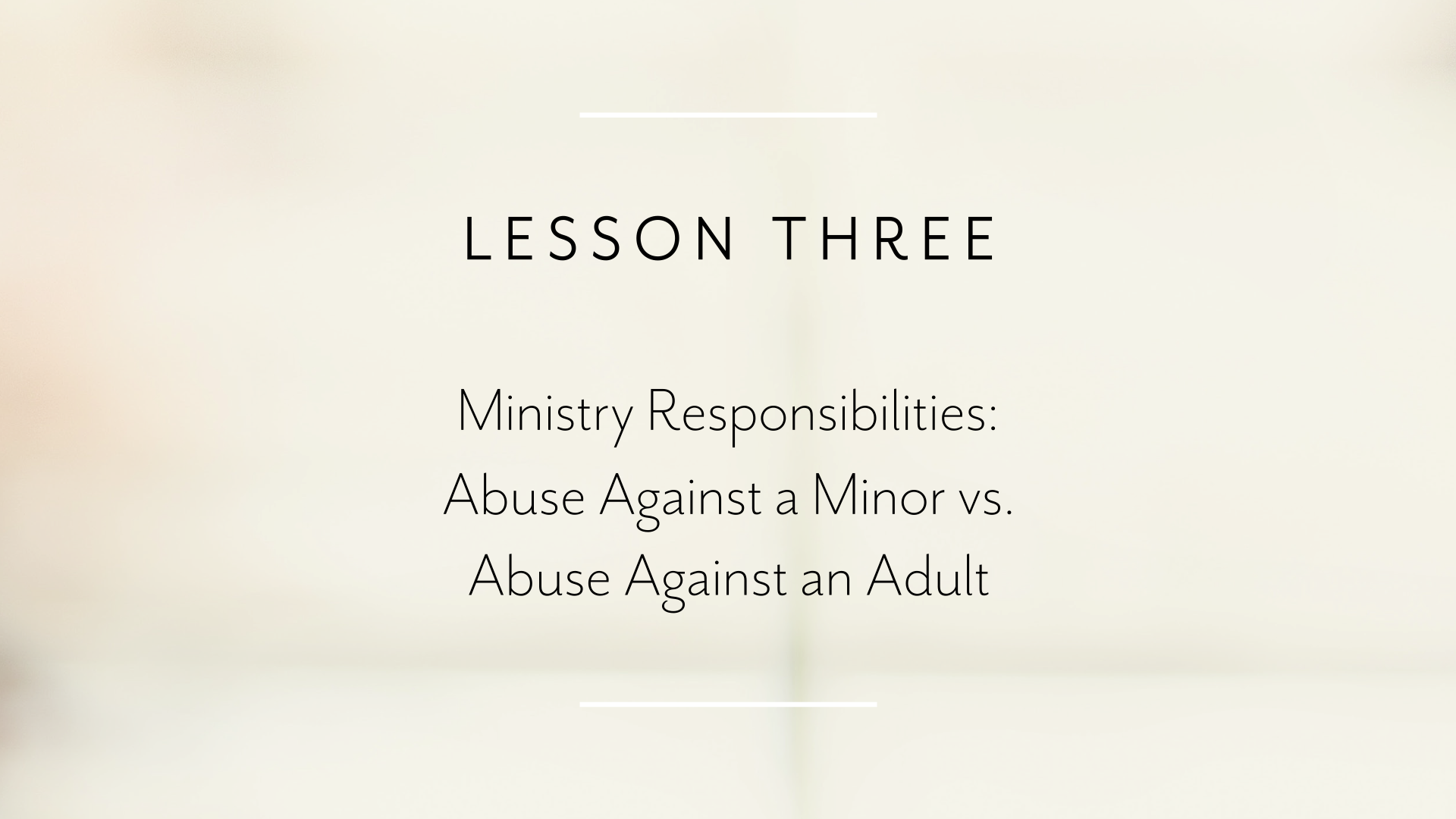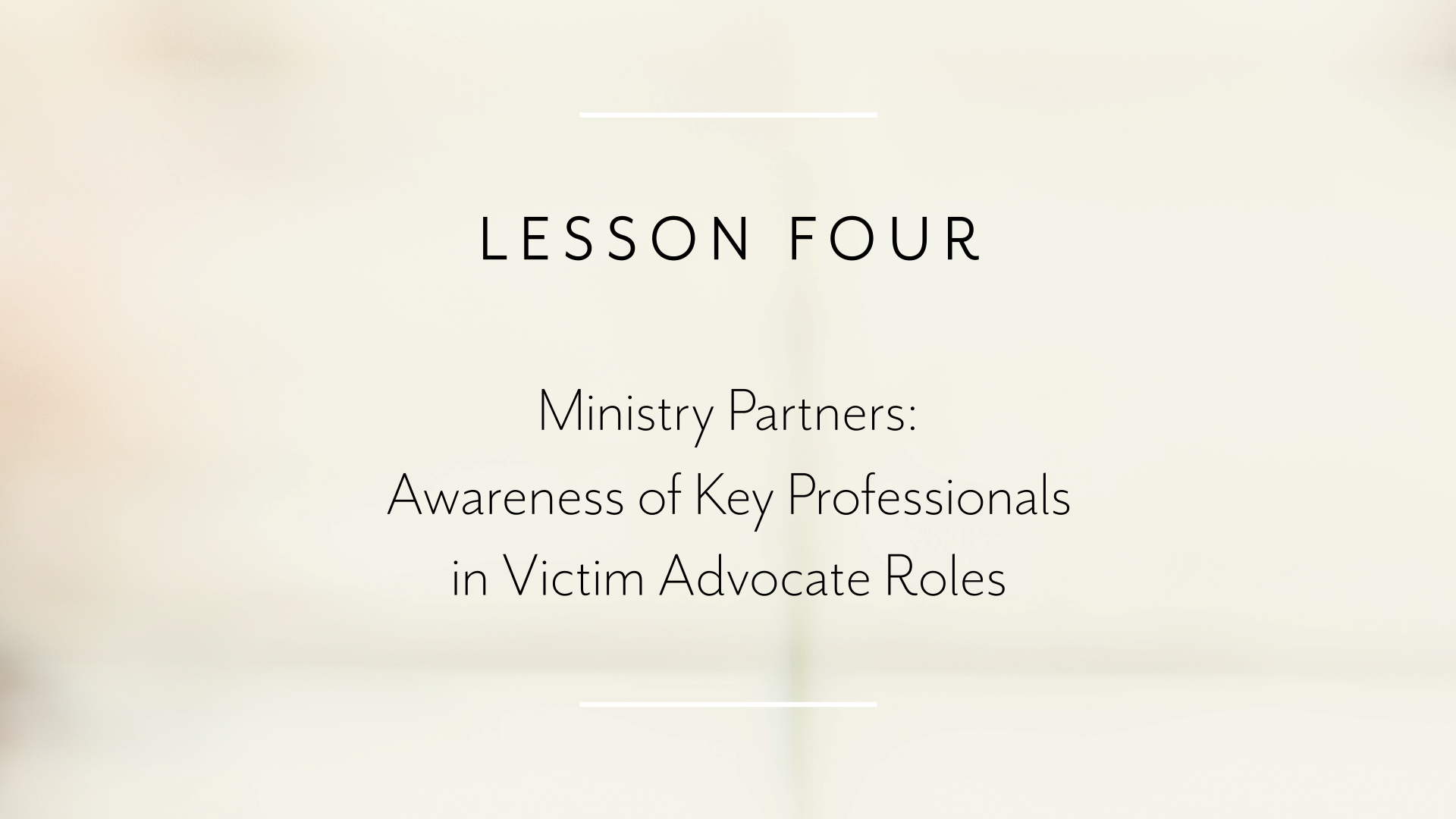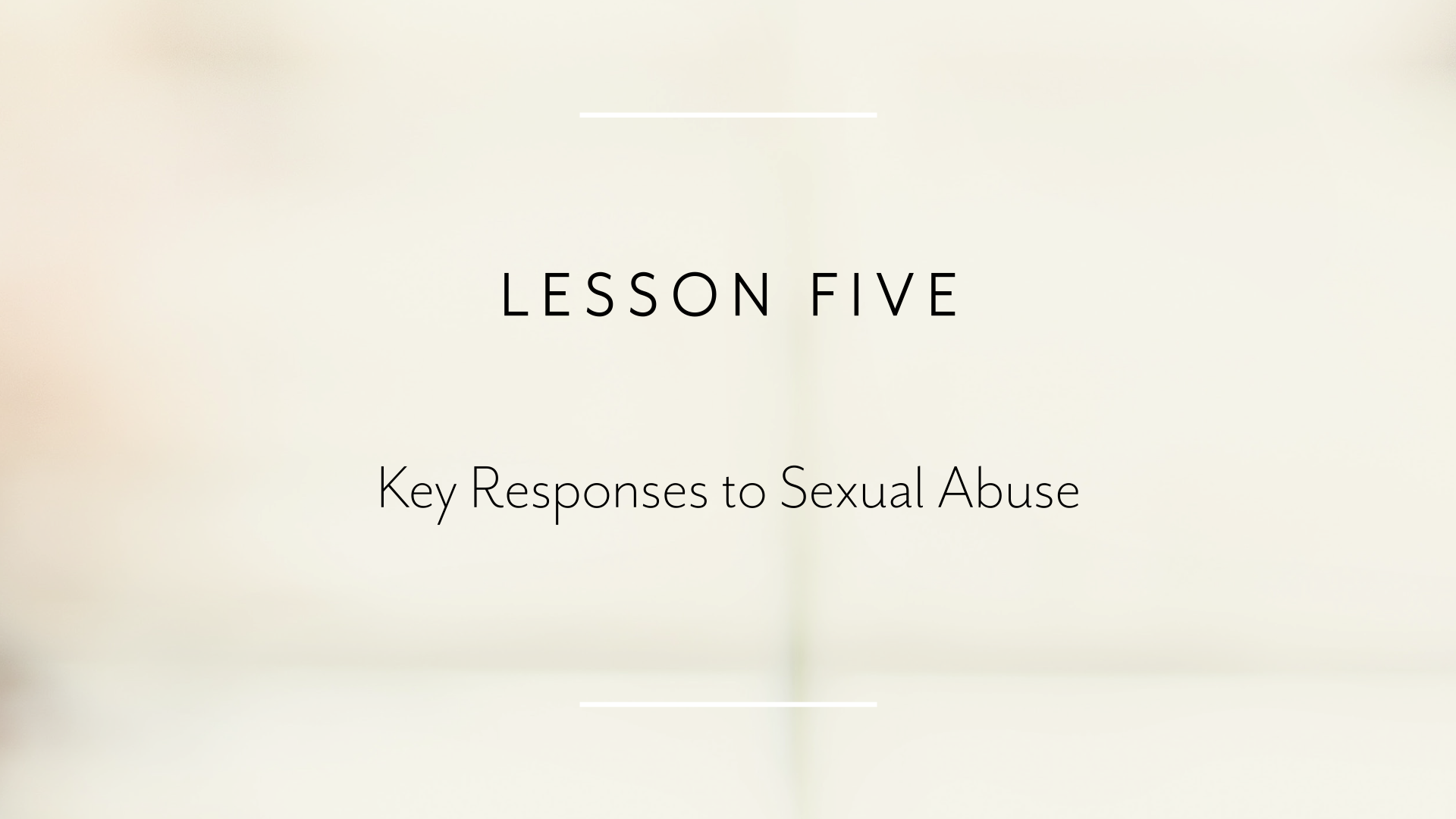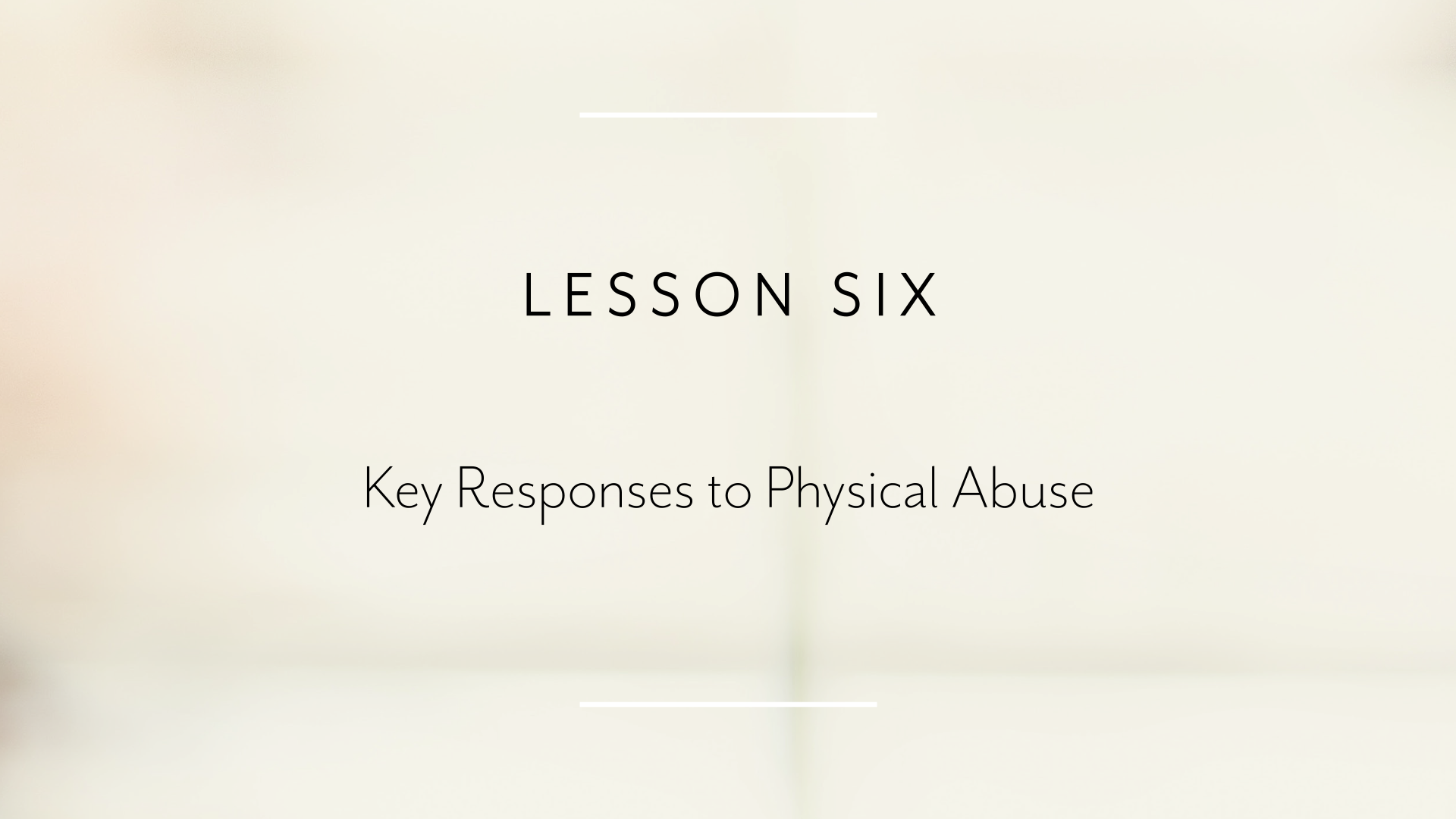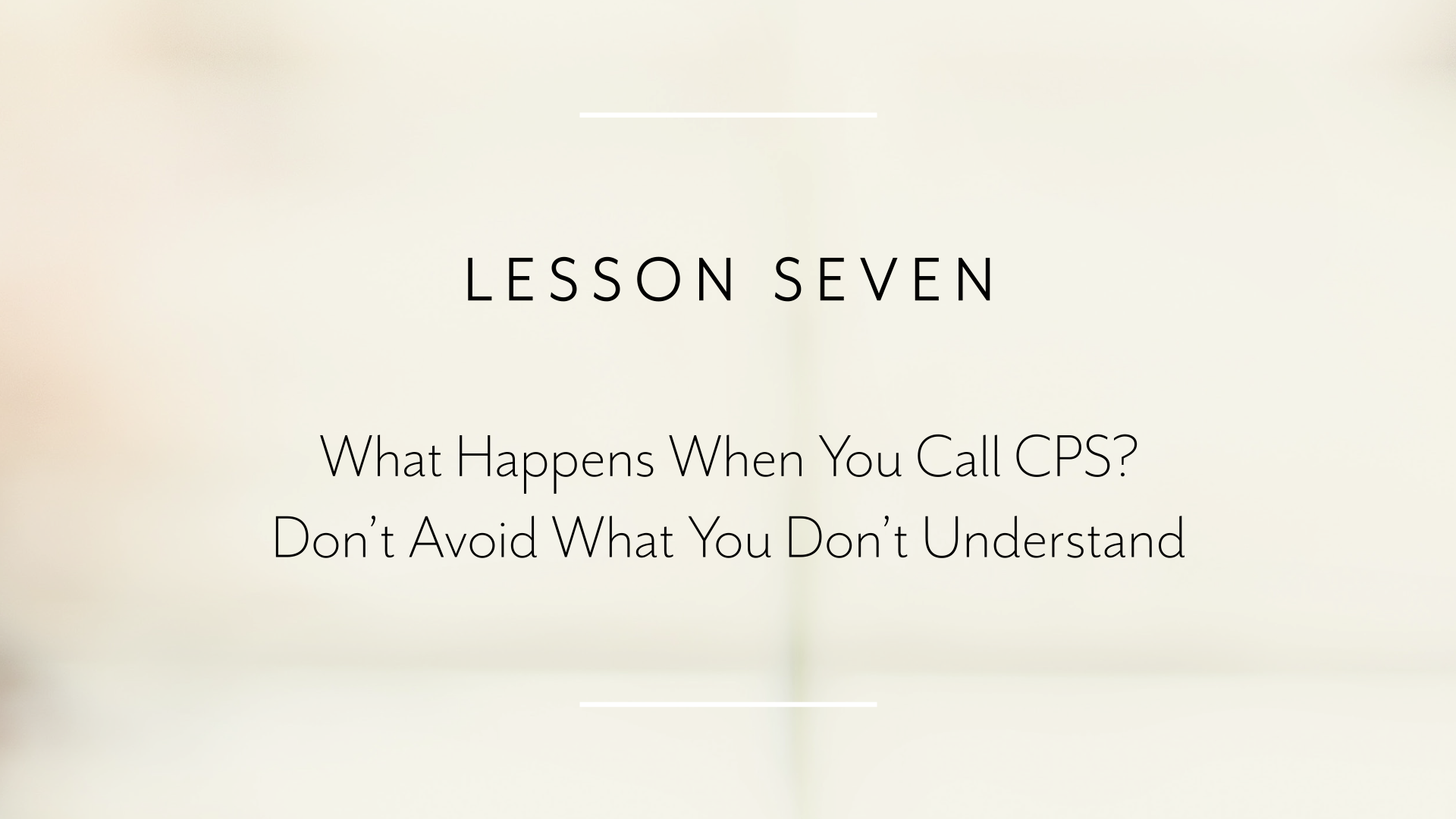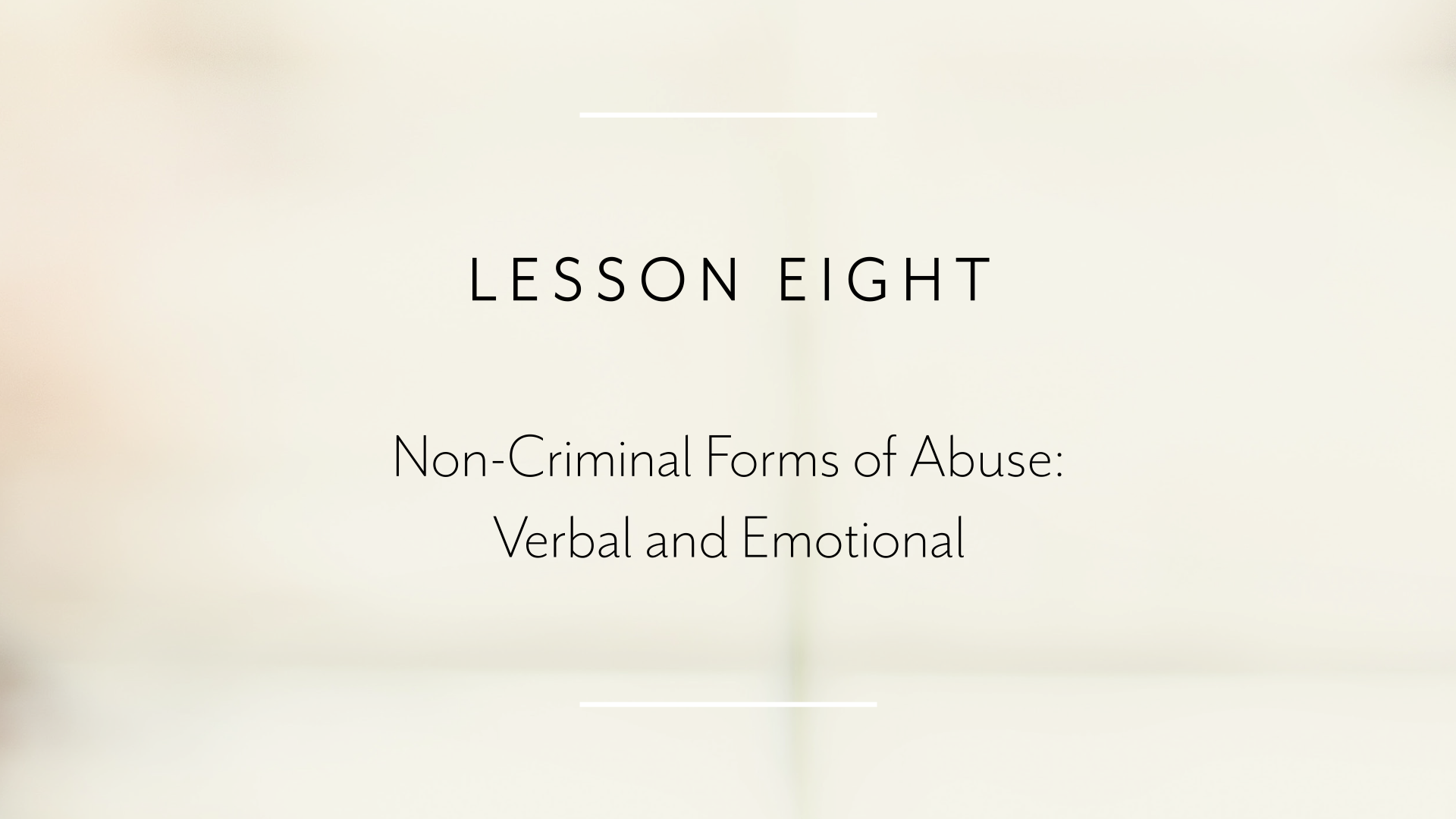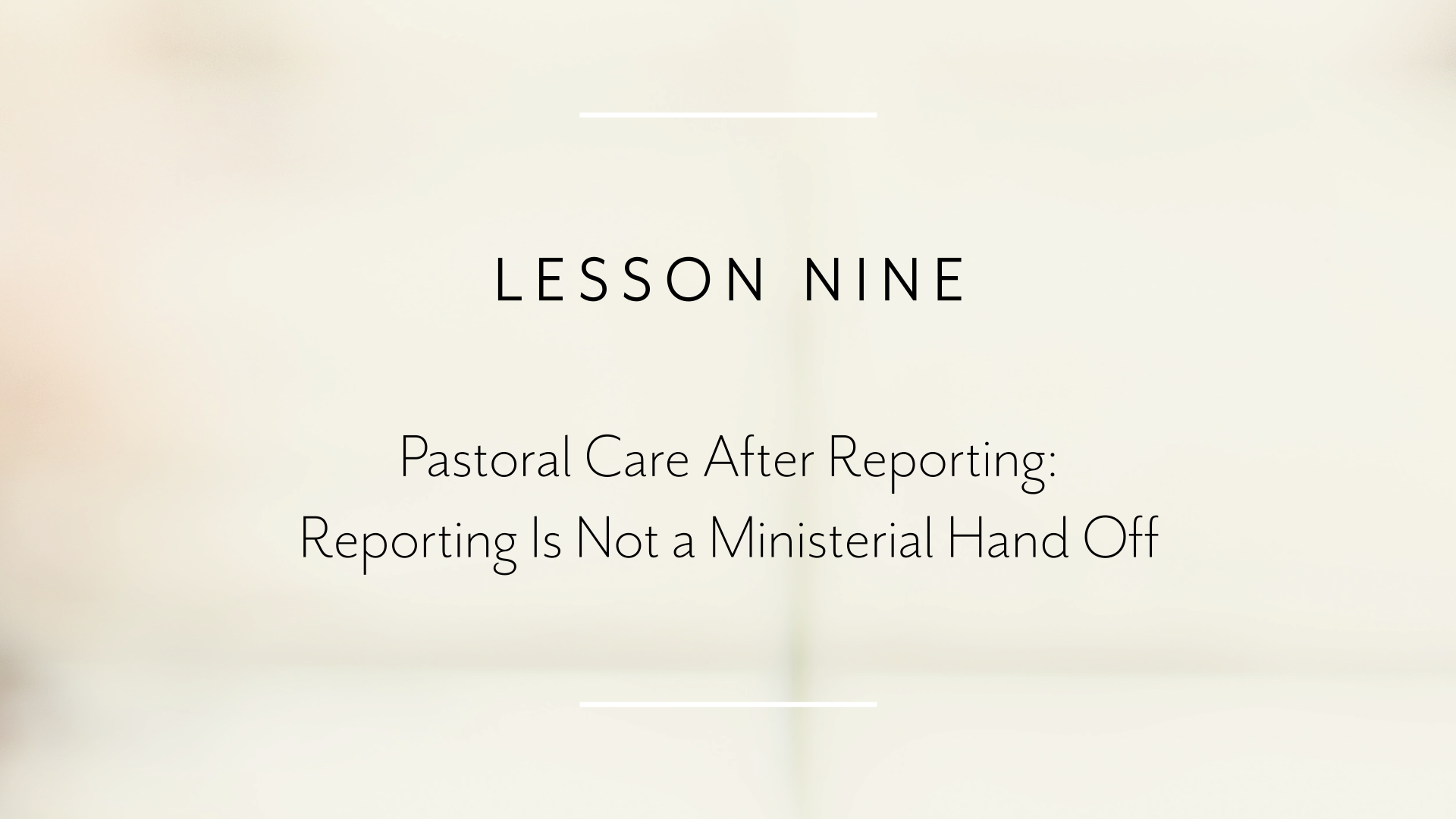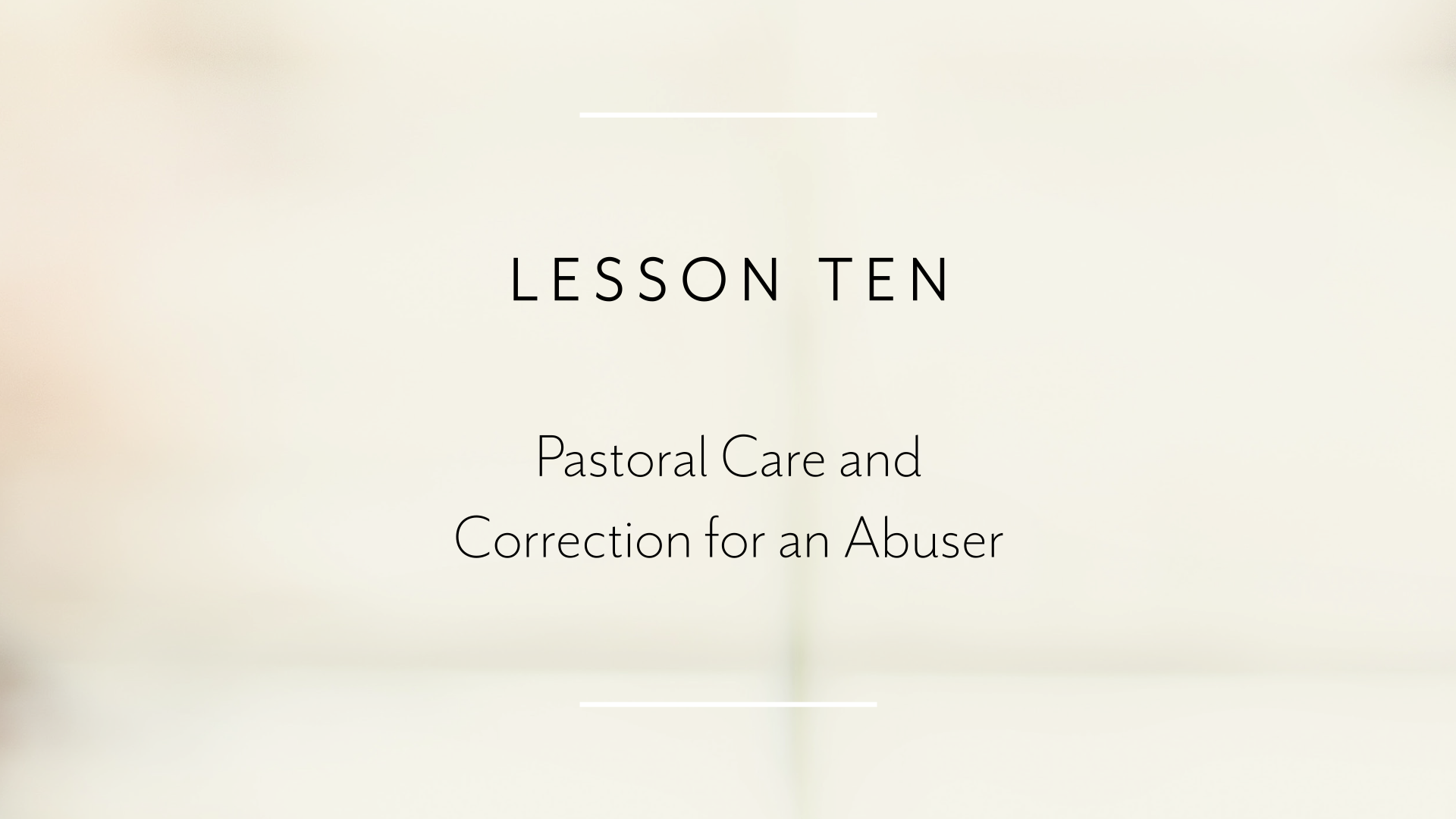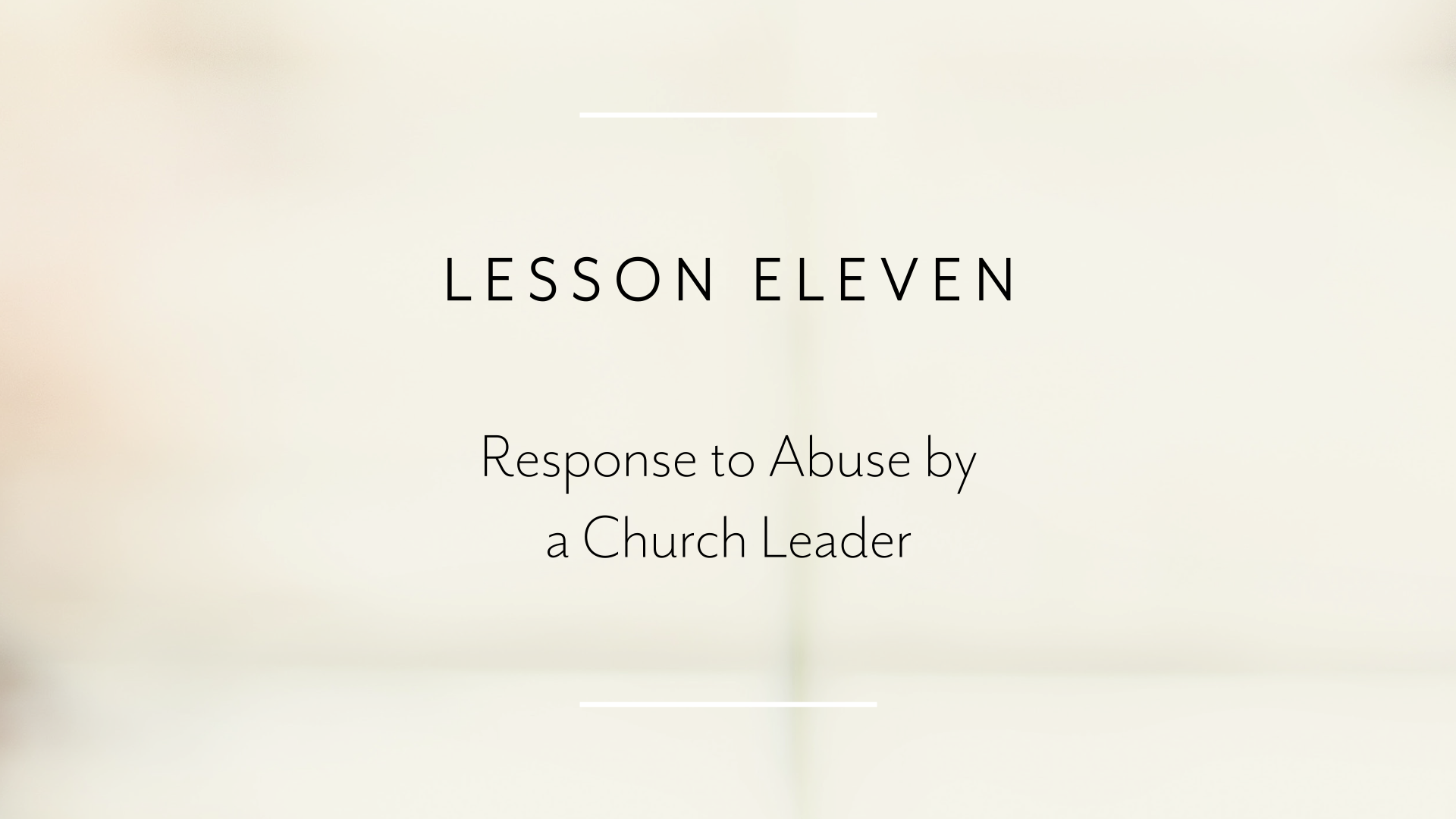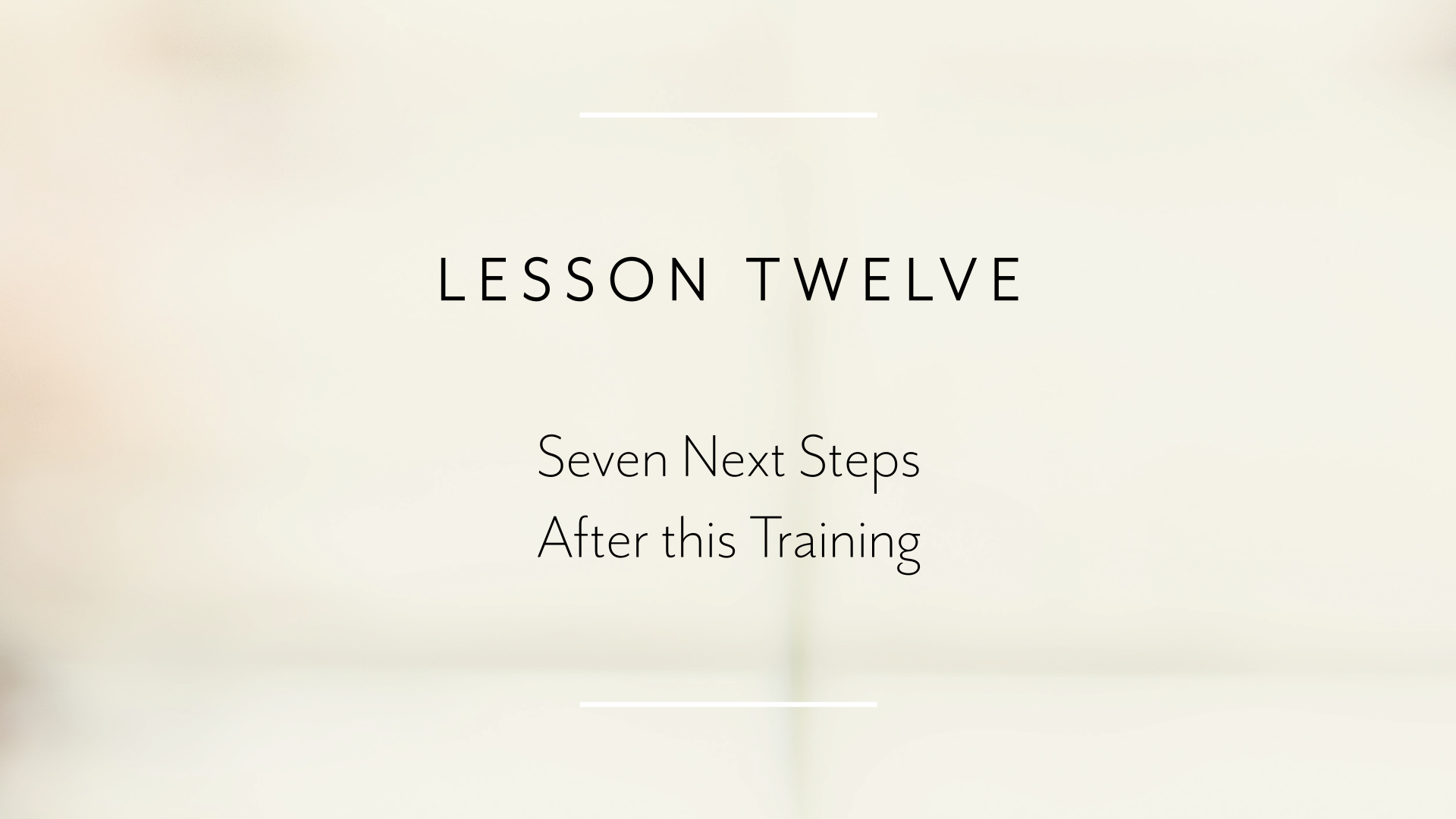Becoming a Church that Cares Well for the Abused is a training experience designed to equip the church on how to respond well to the initial report of abuse.
This training curriculum brings together top experts from various fields to help pastors and ministry leaders understand and implement the best practices for handling a variety of abuse scenarios in churches, schools, or ministries. The most comprehensive training is experienced by using the handbook and the videos together.

Start Video Training
You may preview video lessons below. To assign this training to others in your church or ministry, track user progress, and receive a certification of completion, select Start Video Training.
Start Video TrainingWe believe every church must be equipped to respond well in the initial stages of learning about instances of sexual, physical, or emotional abuse. That is why we created Becoming a Church that Cares Well for the Abused. This curriculum brings together top experts from various fields to help leaders understand and implement the best practices for handling the variety of abuse scenarios at church, school, or ministry.
Leslie Vernick, Rachael Denhollander, Karla Siu, Mika Edmondson, Darby Strickland, Samantha Kilpatrick, Andrea Munford, Diane Langberg, Chris Moles & Brad Hambrick
Pastors and ministry leaders, we must know how to respond when we learn about abuse. And we must equip ourselves before we are face-to-face with someone needing our care. In Lesson 1, we want you to see that the church’s compassionate and skillful response to an abuse victim is an expression of the gospel. It is an essential part of our call to be an ambassador of Christ to the most vulnerable in our church and community.
Rachael Denhollander, Leslie Vernick, Mika Edmondson, Andrea Munford, Chris Moles, Samantha Kilpatrick, Karla Siu, Brad Hambrick
Are there often tensions between the political agenda of the state and the theological convictions of the church? Yes. Should that prevent us from working cooperatively with civil authorities in cases of abuse? Absolutely not. Lesson 2 explores ministry tension and how Matthew 18 complements Romans 13. We need to understand how God intended pastoral care and civil authorities to work together when sinful actions are also criminal actions.
Karla Siu, Andrea Munford, Darby Strickland, Samantha Kilpatrick, Leslie Vernick, Brad Hambrick
Pastors and ministry leaders, we must understand our role and responsibilities when we learn of abuse against both minors and adults. We must understand these differences. In Lesson 3, panelists explain when reporting abuse is mandated and how to help a survivor when the decision about pressing charges is theirs to make.
Mika Edmondson, Karla Siu, Leslie Vernick, Chris Moles, Brad Hambrick
Could you articulate what Child Protective Services does? Do you know the scope of what a social worker does in an abuse case? Do you know what a Guardian ad Litem is? As pastors and ministry leaders, we need to know the individuals and organizations in our community who can help us care well for individuals facing abuse. Lesson 4 examines the importance of ministry partnerships and knowing the key professionals in victim advocate roles in your community.
Diane Langberg, Darby Strickland, Rachael Denhollander, Samantha Kilpatrick, Andrea Munford, Brad Hambrick
In part 2 of Becoming a Church that Cares well for the Abused, we focus on key responses from pastors and ministry leaders. Lesson 5 explores basic pastoral practices for receiving a sexual abuse disclosure, how to listen well to a minor disclosing sexual abuse, and key qualities of counselors equipped to care well for sexual abuse survivors. These are sensitive disclosures. Let’s make sure we steward well the trust being given to us in these moments.
Chris Moles, Leslie Vernick, Mika Edmondson, Darby Strickland, Andrea Munford, Brad Hambrick
Have you ever suspected an abusive relationship but not known exactly how to respond? Or has a disclosure of abuse left you shocked because you can’t comprehend that this person is an abuser? Lesson 6 examines features of physical abuse that often cause us to mislabel it, what indicators to look for, what questions to ask, and how to develop safety plans as you care for physical abuse survivors.
Andrea Munford, Karla Siu, Chris Moles, Diane Langberg, Mika Edmondson, Brad Hambrick
It is unwise to avoid something just because you don’t understand it. Tragically, that is how many people respond to calling CPS. They’re not sure what’s going to happen, so they don’t make the call. Lesson 7 explores what happens when and after you call CPS and how to best continue care for a child survivor and their family.
Andrea Munford, Karla Siu, Chris Moles, Diane Langberg, Mika Edmondson, Brad Hambrick
When we assume that all abuse is criminal, it can lead us to either take steps that are not good for the victim or minimize instances of non-criminal abuse. Lesson 8 helps us understand the difference between an instance of rudeness and emotional abuse. Is this subject confusing and difficult? Yes. But it is a real experience for many and, therefore, we need to know how to care well in the name of Christ.
Rachael Denhollandar, Mika Edmondson, Darby Strickland, Samantha Kilpatrick, Leslie Vernick, Chris Moles, Brad Hambrick
Pastors and ministry leaders, we must understand that reporting abuse is not a ministerial handoff. Meeting our legal obligation is the beginning, not the end, of our ministry role. In Lesson 9, panelists discuss best practices in pastoral care after abuse has been reported. We need to know practical and meaningful ways to serve survivors after their courageous act of disclosing abuse.
Chris Moles, Diane Langberg, Leslie Vernick, Darby Strickland, Samantha Kilpatrick, Mika Edmondson, Brad Hambrick
As church leaders, our response to abuse isn’t limited to survivors. We are also called to offer corrective care for abusers, as panelists discuss in Lesson 10. We want to be redemptive, but "redemptive" cannot be naive or a synonym for cheap grace. We need to be informed of what to expect and what to look for in this difficult area of ministry.
Chris Moles, Diane Langberg, Leslie Vernick, Darby Strickland, Samantha Kilpatrick, Mika Edmondson, Brad Hambrick
One of the most difficult realizations for pastors and ministry leaders is that abuse occurs at the hands of church leaders: paid staff or ministry volunteers. We need to think through in advance how to respond before the crisis erupts, or it is unlikely we will fulfill all our responsibilities. Lesson 11 examines how to respond to abuse by a church leader.
Chris Moles, Darby Strickland, Diane Langberg, Rachael Denhollander, Leslie Vernick, Samantha Kilpatrick, Andrea Munford, Mika Edmondson, Karla Siu, Brad Hambrick
In the final lesson of Becoming a Church that Cares Well for the Abused, we hope that you and your church have become more aware and skilled in responding well to the variety of abuse cases that will emerge in your ministry context. As our curriculum training ends, let the final words from our panel encourage and challenge you as they offer important next steps in how to be an accurate and effective ambassador of Christ for individuals experiencing abuse.
Spanish Curriculum

Copyright © 2019 Church Cares.
All rights reserved.
This resource is produced by the Caring Well initiative. Learn more at CaringWell.com
.png)
